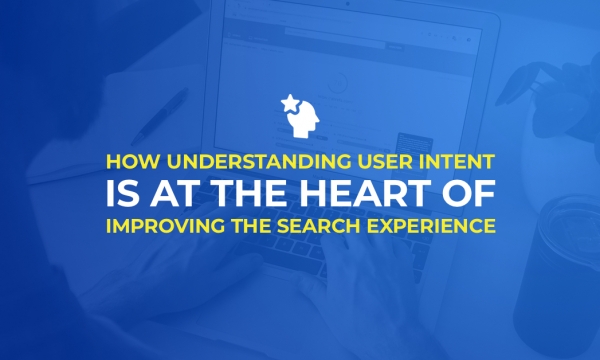
The way in which digital has evolved and how Google has adjusted its algorithm to both drive and reflect that evolution, has changed the way in which brands and agencies need to think about digital. The relationship between brands and agencies has developed, with agencies that were once focused purely on technical disciplines now supporting their clients on a much broader range of requirements and resource needs.
But these changes have changed the way in which many agencies communicate to both their existing clients and prospects, and many are neglecting some fundamental elements and ranking factors that are still massively critical to organic search ranking.
In producing our latest whitepaper, Redefining SEO: What your agency should be telling you in 2016, we identified a number of misconceptions and trends that suggested that many brands and agencies were not quite focusing on the full digital picture. Here is what we found that your agency should – and shouldn’t – be telling you.
"Digital matters to everyone"

As digital channels have evolved, search has also evolved. Google’s algorithm has changed considerably in recent years to ensure that search results are relevant, have integrity (in being free from manipulation), and allow Google to generate revenue from paid ad placements.
Amongst the 500-600 algorithm updates made every year, significant effort has been made to protect search results from manipulation from external sources. Essentially, Google wants to prevent any one organisation or individual from influencing search results to their benefit and the detriment of users.
As a result, digital strategy now an integral part of any organisations communication strategy, and the responsibility for its success lies on all aspects of the business.

A common challenge for those tasked with delivering digital growth is aligning a growing number of operational departments to work towards this goal of digital success, even if those departments do not have a specific or direct remit to support a digital marketing effort. This would include above-the-line marketing, branding, PR, customer services, IT, social media, data analytics, sales, logistics and a host of other core business functions.

These are the key skills that you need within your digital function but, as is often the case in large enterprises, it is often difficult to get these multiple departments to collaborate and work to a single common goal. The team tasked with delivering your strategy ultimately needs to be capable of engaging these multiple stakeholders and articulating the aims of your digital strategy.
It is this challenge that has seen many large organisations (Adidas being one notable example) introduce a ‘Digital Centre of Excellence’ model, where a digital presence is embedded into each operational department. This is designed to break down the barriers that often exist between teams, and it ensures that digital expertise and skills are present within each department.
Whatever model you ultimately use, your agency should be working with you on the ‘internal sell’ of digital, convincing key stakeholders to dedicate some of their energies into digital.
"Backlinks no longer matter"

You’ve probably heard this in one guise or another. Agencies will be have been queuing up to tell you that links are no longer relevant, that Penguin has rendered link acquisition at best unnecessary and at worst, a fundamental risk to your campaign.
Let’s address that myth right now. Links still matter. Bad links will harm your campaign but good, natural links that pass on genuine authority are an essential factor in search engine rankings and, whilst their influence has reduced somewhat, there is still a significant correlation between links and authority, and search ranking.

The way that these links and the authority that they pass on are achieved has undoubtedly changed, but that does not mean that you have to neglect this factor entirely. Don’t let anyone convince you that SEO is now content marketing, or that content marketing is SEO.
"Modern SEO is all about balance"

Search engine optimisation has evolved to a point where it is now a fundamental element of almost every aspect of a brand’s marketing, communications and customer experience. It is no longer a single technical discipline, sat in silo from the rest of the business, nor is it some form of ‘dark art’ that relies upon masses of code manipulation or paid link placements. Instead, it is a discipline that requires the support of the entire business operation in order to deliver on key performance factors.
But above all, modern SEO requires balance. It’s not enough to get one of these elements right in order to succeed - you need to be able to excel in all of the key performance factors.

An SEO or digital strategy cannot succeed if it is too heavily loaded or focused on a small number of performance metrics, and each of the strategic components that you deploy has to compliment every performance factor.
A lot of agencies will focus their efforts very heavily on the creative elements of digital marketing and, whilst they are undoubtedly important, you have to ensure that the foundations are in place to make the most of this creative.
"The only good content is shareable content"

Not exactly. Shareable content is undoubtedly a huge factor in any successful digital strategy, but it is only part of the mix. Not every piece that you will produce is going to attract thousands of shares and links, but that doesn’t mean that it isn’t valuable.
Many agencies will focus their efforts into the more ‘creative’ forms of content that attract links, shares and column inches, but functional content plays a vital role in any digital strategy.
Functional content is very much the staple of your entire web presence, and can cover anything from your company information and store or branch pages, through to the copy on your product and sales pages. The importance of this content is often overlooked, but this copy communicates information to search engines and is highly relevant to target search queries. It often isn’t possible, or feasible, to produce highly shareable pieces of content, but that doesn’t mean that you shouldn’t invest heavily in producing strong functional content.
Your functional content helps to establish relevancy for each and every page. If, for example, your organisation is one that tends to transact at a localised level (for instance, through local branches), the quality of your store finder pages can really help you to establish relevancy for geographic keyword searches (for instance, “building supplies in London” or “Heathrow car rental”). Your agency should be appraising all of your functional content to identify just how it is establishing relevancy for the keyword searches that are important to your brand, and identifying any potential gaps in coverage.
Functional content is also what helps guide your customer to purchase, particularly product or sales copy. If your functional copy is uninspiring or unengaging, it is unlikely to drive a conversion. If your content is too thin or is merely stock content provided by the manufacturer, it is unlikely to portray relevancy to a search engine and, particularly in the era of Panda, is actually likely to put your pages at risk of penalty.
"You have to invest in making your content move"

Marketing communications fundamentally relies on owned, earned and increasingly, paid media.
Social media algorithms continue to evolve in a way that reduces the potential organic reach of branded content in order to preserve the user experience, and to encourage brands to pay for promoted content. Facebook in particular has made very public statements that, following user feedback, its algorithm will favour personal content (ie, non-commercial) content in the newsfeeds of its users. Today, a post on social media is likely to reach only a fraction of your active audience on organic distribution alone.
Don’t invest in producing content without a consideration for how you are actually going to get it in front of the audiences that you want to reach. Set aside budget for making your content move, because the social networks won’t move it for you.



